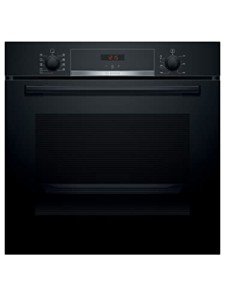17 Signs To Know You Work With Bulit In Oven
The Comprehensive Guide to Built-in Ovens: Features, Benefits, and FAQs
Built-in ovens have become a staple in contemporary cooking areas, offering convenience, design, and efficiency. Unlike standard freestanding ovens, built-in models are designed to integrate effortlessly into cabinets, consequently raising both the function and aesthetics of kitchen areas. This short article delves deep into the world of built-in ovens, discussing their features, advantages, installation considerations, and responses to regularly asked concerns.
What is a Built-in Oven?
A built-in oven is a home appliance that is created to be installed directly into a wall or kitchen cabinets. This installation choice offers house owners the capability to develop a customized cooking area, optimizing available kitchen square video footage while providing a sleek, professional appearance.
Key Features of Built-in Ovens
Built-in ovens are loaded with features that cater to a range of cooking styles and preferences. Secret functions consist of:
Feature
Description
Variety of Cooking Modes
Options such as convection baking, broiling, and self-cleaning modes to enhance cooking versatility.
Size and Configuration
Readily available in different sizes and heights to fit specific kitchen layouts, ranging from compact to bigger systems.
Design Options
Aesthetic choices consisting of stainless-steel, black stainless, and customized panels to match any kitchen design.
Smart Technology
Lots of built-in ovens come geared up with Wi-Fi capabilities, allowing remote monitoring and control by means of smart device apps.
Multi-Functionality
Some designs integrate oven and microwave or include steam functions to develop varied cooking choices.
Advantages of Built-in Ovens
The benefits of integrating a built-in oven into a kitchen style extend beyond simple aesthetic appeals. Here are some noteworthy benefits:
1. Area Efficiency
Built-in ovens free up counter top area by removing the need for a freestanding unit. Their integration into kitchen cabinetry enables a cleaner kitchen layout.
2. Enhanced Visual Appeal
With smooth designs and personalized surfaces, built-in ovens enhance the overall look of the kitchen, adding to a more cohesive style.
3. Improved Cooking Performance
Lots of built-in models provide innovative cooking technologies, such as convection cooking, which circulates hot air for even cooking, lowering cooking times and improving results.
4. Convenience and Accessibility
Built-in ovens are frequently placed at eye level, making it simpler to examine cooking development, lowering the need to bend down, and enhancing safety.
5. Increased Home Value
A properly designed kitchen with built-in appliances can substantially increase a home's worth, making it more attractive to prospective purchasers.
Installation Considerations
When selecting and setting up a built-in oven, there are a number of aspects to consider:
- Kitchen Layout: It's vital to plan how the oven will suit the existing area, including cabinet heights and clearance requirements.
- Electrical and Ventilation Needs: Built-in ovens usually need specific electrical setups; make sure that the kitchen abides by regional electrical guidelines.
- Expert Installation: Due to the complexity of installation, hiring a specialist can make sure that the oven is set up safely and correctly.
Kinds Of Built-in Ovens
Built-in ovens can be found in different types, each matched for various cooking styles. Below are a few of the most typical:
- Single Oven: A traditional choice for everyday cooking requirements, offering adaptability for baking, roasting, and broiling.
- Double Oven: Offers two different cooking compartments, enabling simultaneous preparation of multiple dishes— a favorite for large families and those who entertain regularly.
- Wall Oven: These ovens are fully integrated into the wall and come in different styles, consisting of steam ovens and mix microwave.
Popular Brands of Built-in Ovens
Numerous respectable brand names provide top quality built-in ovens, known for their reliability and variety of functions:
- Bosch: Known for smooth design and advanced cooking innovation.
- KitchenAid: Offers imaginative features and multi-functional styles.
- Samsung: Integrates clever technology with a modern-day aesthetic.
- GE Appliances: Provides a series of choices for numerous budgets.
Regularly Asked Questions (FAQs)
1. How do built under double oven and hob packages pick the right built-in oven for my kitchen?
When selecting a built-in oven, think about the size of your kitchen, your cooking style and frequency, the readily available spending plan, and any needed electric outlets or ventilation alternatives.
2. Are built-in Electric built in oven and hob packages ?
Many built-in ovens feature energy-efficient technologies, such as much better insulation and exact temperature level controls, which can cause less energy intake compared to traditional ovens.
3. Can I set up a built-in oven myself?
While some homeowners may try DIY installation, employing a professional is highly recommended to make sure safe and correct setup, particularly worrying electrical connections.
4. What maintenance do built-in ovens require?
Regular upkeep includes cleaning the oven exterior and interior, checking the seals for stability, and making sure that any clever features or controls are upgraded as needed.
5. Do built-in ovens included guarantees?
Yes, many credible brands offer warranties on their built-in ovens, normally covering parts and labor for a specified duration. Make sure to check the details before purchasing.
Built-in ovens offer a blend of style, effectiveness, and performance, making them a popular choice for both modern and traditional cooking areas alike. With thoughtful factor to consider of features, setup, and upkeep, property owners can improve their cooking experience while including significant worth to their residential or commercial properties. Whether going with a single or double oven, the investment in a built-in model guarantees to transform the cooking landscape of any home.
